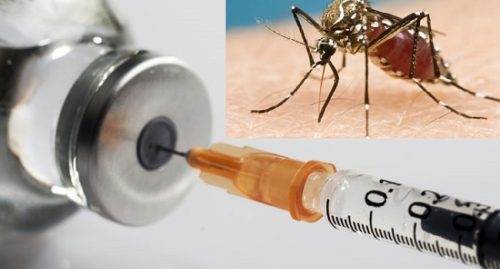December 29th, 2021
While the world in 2021 continued to battle the pandemic for the second year in a row — a brutal plague caused by an invisible virus that has killed 5.4 million human beings so far — international health experts reported important progress earlier this year on tackling another major global health challenge. In October, the World Health Organization announced its endorsement of the recently approved, first-ever malaria vaccine:
“For centuries, malaria has stalked sub-Saharan Africa, causing immense personal suffering,” said Dr Matshidiso Moeti, WHO Regional Director for Africa. “We have long hoped for an effective malaria vaccine and now for the first time ever, we have such a vaccine recommended for widespread use. Today’s recommendation offers a glimmer of hope for the continent which shoulders the heaviest burden of the disease and we expect many more African children to be protected from malaria and grow into healthy adults.”
The new malaria vaccine, RTS,S/AS01, will go by the name of Mosquirix. Pediatrician Miriam K. Laufer explains why approval of this long-awaited vaccine is such a big deal:
Malaria, a parasitic disease transmitted by bites from infected mosquitoes, causes nearly half a million deaths per year, mostly in children in sub-Saharan Africa.
This is the first time that researchers, vaccine manufacturers, policymakers and advocates have successfully delivered a vaccine that has made it through clinical trials and received not only regulatory approval but also a recommendation from the WHO.
This vaccine prevents about 30% of severe malaria cases that are more likely to lead to death.
Worldwide, a child dies from malaria every two minutes. Roughly 3.2 billion people — nearly half of the world’s population — are at risk from this major public health threat. In 2016, WHO estimated 216 million new cases and 445,000 deaths from malaria. As Dr. Laufer points out, malaria has its biggest impact on children living in sub-Saharan Africa, where the deadly parasite, Plasmodium falciparum, thrives in the bellies of mosquitos and in the blood of its human victims:
It is a disease that preys on the poorest of the poor. It causes the most disease and death in places where people lack access to basic health care, where housing conditions allow mosquitoes to enter and where inadequate water management provides breeding ground for mosquitoes. Despite international efforts to control it, the burden of malaria has continued and even increased over the past several years.
Korin Miller calls the groundbreaking news of the new malaria vaccine a “historic moment”:
Plainly speaking: This news is a big deal for global health—not only as a first-of-its-kind vaccine to combat a disease that has plagued the world’s population for centuries, but as a medical technology that works against parasitic diseases overall, which are notoriously more complex than both bacterial and viral diseases[…]




































